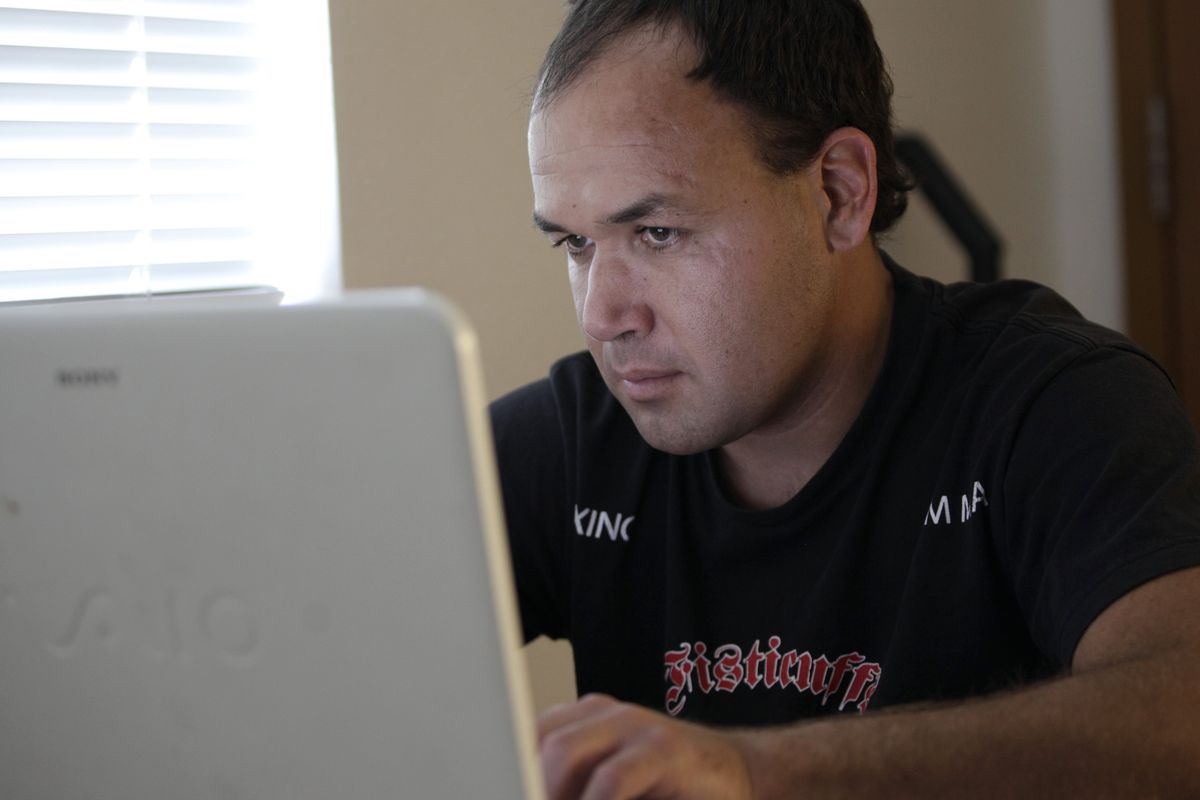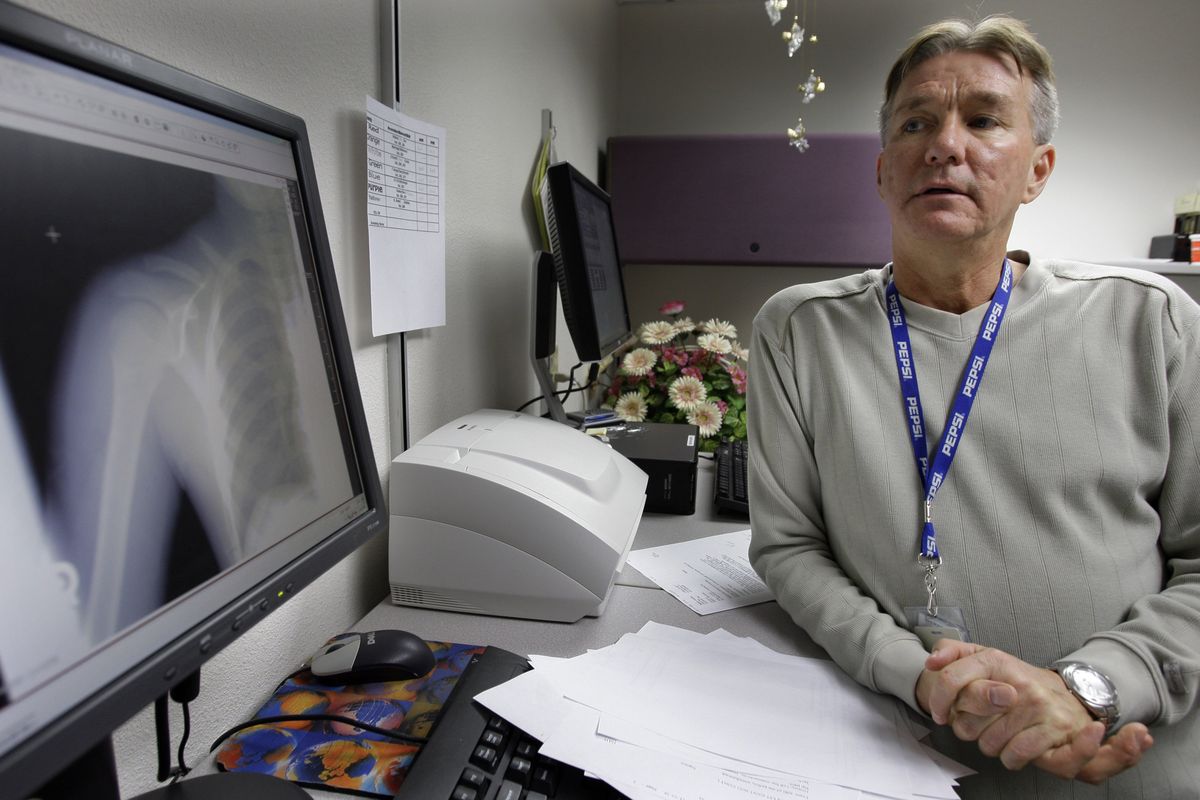Tribe hopes to cast a wider Web
Coeur d’Alenes among applicants for federal broadband funding
Frank Bybee, who lives on the Coeur d’Alene Indian Reservation, works in the computer lab in tribal offices. (The Spokesman-Review)
WASHINGTON – The federal government will soon start handing out the first $4 billion from a pot of stimulus funds intended to spread high-speed Internet connections to more rural communities, poor neighborhoods and other pockets of the country clamoring for better access. The challenge is that the government has received $28 billion in requests.
So the reviewers at the Commerce and Agriculture departments who will award the broadband money must make hard choices. The 2,200 applications each envision something different – more fiber-optic lines, for example, or computer labs or municipal wireless networks. But they all promise that their proposals will create jobs and new economic opportunities.
What follows are snapshots of four projects representing a cross section of the broadband stimulus hopefuls. It’s too soon to know which plans will win federal grants or loans, even as the total broadband stimulus expands to $7.2 billion. Those that do get picked may not get the full amount they are seeking.
But perhaps one – or more – of these has a chance.
A tribal lifeline
For the Coeur d’Alene Tribe, the stimulus money could mean a lifeline to the outside world.
The tribe is asking for $12.2 million for a ring of fiber-optic lines that could connect up to 3,500 homes on one side of its rural reservation.
Although the tribe launched its own wireless network in 2005 with the help of Agriculture Department funding, that network reaches less than half the reservation and slows to a crawl whenever too many people get online at once.
Valerie Fast Horse, the tribe’s information technology director, says stimulus money would let the Coeur d’Alene Tribe build a network that is “more stable and more reliable” and could deliver faster connections at lower prices.
The tribe’s wireless network currently offers top speeds of 1.5 megabits per second, comparable to standard DSL service available elsewhere. But it charges users about $100 a month, about four times the standard price. The proposed fiber network would deliver a 20-megabit connection – faster than what most cable subscribers get – for $100 a month. Or tribe members would be able to get a 1.5-megabit connection for $25 a month.
Fast Horse envisions all sorts of uses for the fiber lines, including distance learning. Tribe members already use video conferencing to participate in classes at North Idaho College, but that requires them to travel to the tribe’s education center, which has a landline connection to the Internet. A fiber-to-the-home network would let tribal members take classes without leaving their kitchens, she says.
It would also enable Coeur d’Alene members to consult with medical specialists around the country. And it would help the tribe preserve its language and culture, by allowing more members to access the tribe’s video-sharing Web site, RezKast. Among other things, the site features clips of powwows and online tutorials with tribal elders speaking their native language.
Connecting Detroit poor
Clearwire Corp., a company pioneering the use of a next-generation wireless technology known as WiMax, is upfront about the fact that some markets don’t make sense for telecom providers that need to show a profit.
So Clearwire is asking for $19.4 million to build a high-speed wireless network in a handful of poor Detroit neighborhoods that it otherwise might not serve anytime soon.
Although those neighborhoods have more than 800,000 people, high unemployment and poverty levels make for a tough business case. But federal dollars would change the equation, says John Bunce, president of the Clearwire unit applying for stimulus funding.
Underserved Appalachia
In Appalachia, a nonprofit Internet provider called the Mountain Area Information Network, or MAIN, wants help expanding a service started back in the dial-up Internet days so that people in the mountains of North Carolina wouldn’t have to make a long-distance phone call to get online.
MAIN is asking for $2.5 million to extend its wireless network in Asheville, N.C., and several remote mountain communities. A sister nonprofit is asking for $38.8 million to install fiber lines that would connect that network to the Internet.
Philadelphia project
Philadelphia is making its second run at a big municipal broadband project. The city is asking for $21.8 million to connect police precincts, fire stations, libraries, housing projects, recreation centers and community organizations across three inner-city neighborhoods.

